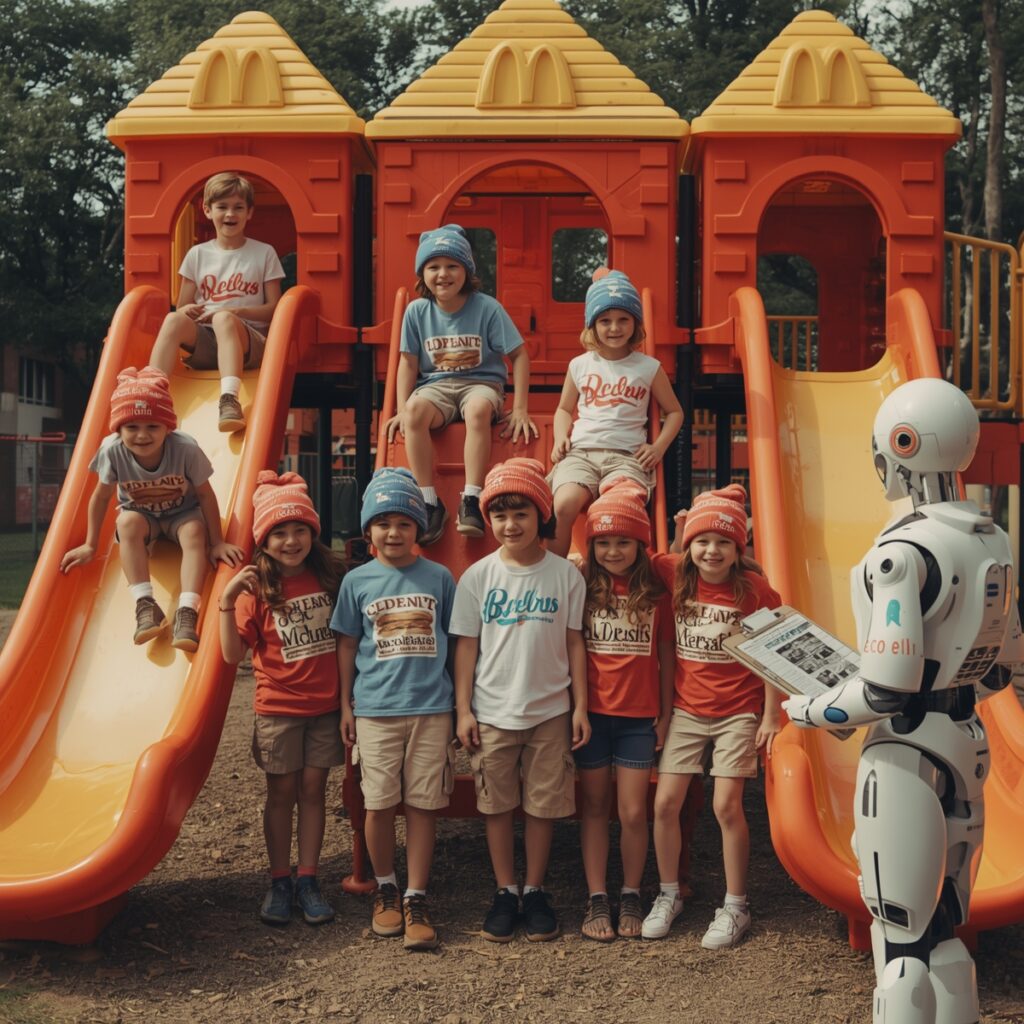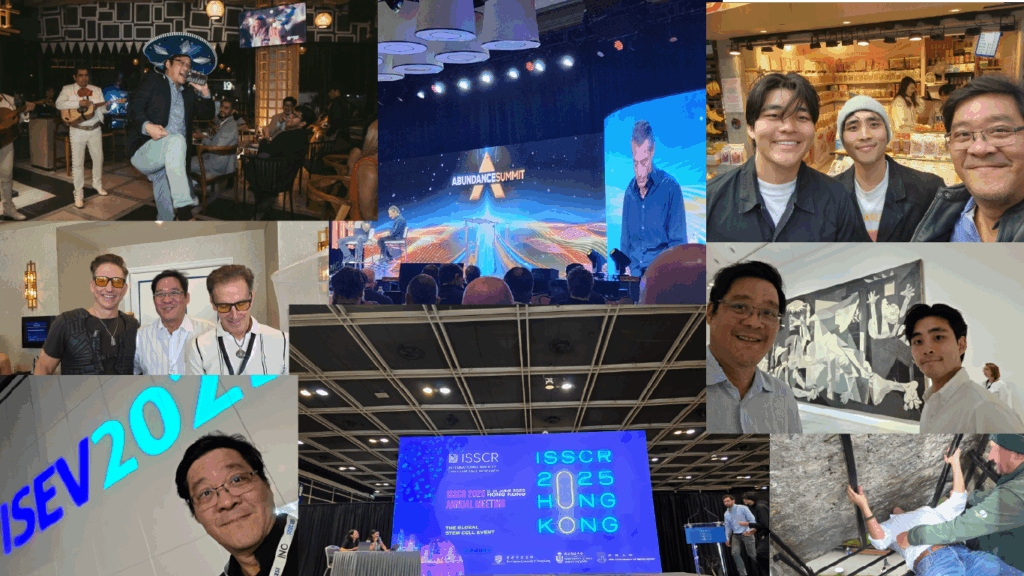
- Written:
- Author: Edward
- Posted in: News
- Tags: brave new world, corporations, isscr2024, nuclear families, recharge biomedical, repopulation, stem cell ethics
Scientists can now make babies without parents. Should they?

This has been an incredible year for growth and discovery. I started the year lecturing in Spanish in Cancun to an audience of physicians. I attended the Abundance 360 conference and heard from the founders of companies in AI, cryptocurrencies, robotics, and brain-computer interfaces. I also went to Dave Asprey’s Biohacker Conference. I attended the annual Exosome conference in Vienna, and finally I attended the international stem cell conference in Hong Kong. Finally, I revisited the invitation-only Renaissance Weekend symposium after many year absence. Oh and I took a six-week sabbatical with my eldest son to Ireland, Scotland, London, Morocco, Madrid, Costa Rica, and Nicaragua….all while launching my weekly podcasts and practicing concierge medicine in 6 states.
The downside is that I have been remiss in sharing what I’ve learned in the form of blogs. I want this brief offering to explain a very exciting and chilling aspect of potential human evolution that you probably have not yet heard of: scientists can now make babies without the help of humans and that is a very interesting development, to say the least.
I would love to share more but for brevity’s sake, I just want to highlight a surreal moment from the stem cell conference. The annual meeting was held in Hong Kong with 2500 scientists from 58 countries and what impressed me most was the ability of those scientist to induce pluripotency, then IN STEPWISE FASHION, make any type of cell they want using signaling.
So what? So you can take any cell from Liam Neeson and Pamela Anderson and now dedifferentiate and make sperm and eggs from that process. Human manufacturing without ovulation, ejaculation into a specimen cup! What’s more, they can fertilize them and even gestate them outside of uterus if they want (based on sheep experiements). Finally, the child can be “birthed” and introduced into its brave new world, without the need for parents, siblings, and the insane beliefs of the legacy culture.
How did this come up? Professor Misao Fujita of Kyoto University is a stem cell researcher and bioethicist and she presented her work on a survey of Japanese citizens about their attitudes concerning creating sperm and eggs, fertilizing them, gestating them (in utero or in plastico), and birthing them. Interestingly, the public split roughly 25%/25%/25%/25% on these steps concerning their ethical acceptability.
At the end of her presentation, I stepped up to the microphone in front of 2000+ attendees and asked
“Given we are around a century from the writing of Brave New World which predicted this and given that countries like South Korea and Japan have demographic collapse occurring, I’d like to ask this audience if they would be opposed or in favor of nations or even corporations producing their own humans as workers, constituents, and taxpayers? People often complain about their childhoods, so maybe professional child-rearing in a pod of siblings by professionals would be acceptable?”
A sort of gasp passed through the room and the speaker hemmed and hawed for about 40 seconds about orthogonally related topics until her brain spit out the response: “I think I would be opposed to making children without families”
"Brave New World, by Aldous Huxley
I want to stress that this is not some science fiction but the actual scientifically-established method for creating Huxley’s Utopia/Dystopia/Heterotopia. I can’t help but think that when the time comes for Walmart to make workers or the Japanese government to make Japan Japanese again, Professor Fujita will not have the final say in the matter but rather keep the pipettes and gestational bags stocked. So let’s unpack what this might mean in a dispassionate way. SPOILER ALERT: if you haven’t read the novel, you may want to skip the rest of the blog.
Dystopia or Utopia?
From our current zeitgeist, many would consider the World State dystopic—but they have achieved “Community, Identity, and Stability,” as their motto promises. Humans are perpetually entertained, chemically soothed with the euphorigenic drug soma, and engage in casual sex the way someone might scratch an itch. The world has order. Everyone knows their social caste and role, genetically preselected from birth into Alpha, Beta, Gamma, Delta, or Epsilon classes. There is order, peace, and prosperity—purchased at the cost of legacy institutions like pair bonding, nuclear families, and pursuits such as science, art, religion, and freedom of choice.
Heterotopia?
The great novels are thought experiments—warnings to the overly agreeable. But some legacy remnants of humanity are bound to survive in our wetware, which is precisely why Huxley’s future requires soma and endless entertainment to dull those inconvenient tendencies. Ask any therapist what most people attribute their neurotic patterns to, and many will point to childhood: years neglected or micromanaged by various family systems. Instead of alchemizing their particular life stresses into superpowers, people languish and perseverate, unable to find peace because their inner children are still screaming for justice.
So maybe—just maybe—being raised in a pod of eight other McDonald’s Epsilons by professional early childhood development experts and fuzzy prosthetic cuddle-AI companions would produce happier, more securely attached Homo sapiens 2.0?
If you asked a San bushman from 200 years ago how a person could live as a wage slave staring at screens between sleep sessions, they’d probably think “The Gods Must Be Crazy” about our current world. Context is everything. One era’s dystopia is another’s normal.
So what?

Much like the invention of nuclear fission, the enabling scientists—let alone the citizens of New York and Hiroshima—don’t get to decide how and why these new technologies are deployed. Like abortion in the mid-20th century, or regenerative stem cell and exosome therapies today, people with power and means will always find access.
But the larger question we face—both in granular detail and in fractally expanded scope—is this: Assuming we are given some voice or choice in the matter, would we support this? Why or why not?
It took Professor Fujita about 40 seconds to arrive at her answer: “I think I would be against making children without families.”
What’s your opinion? And why?

